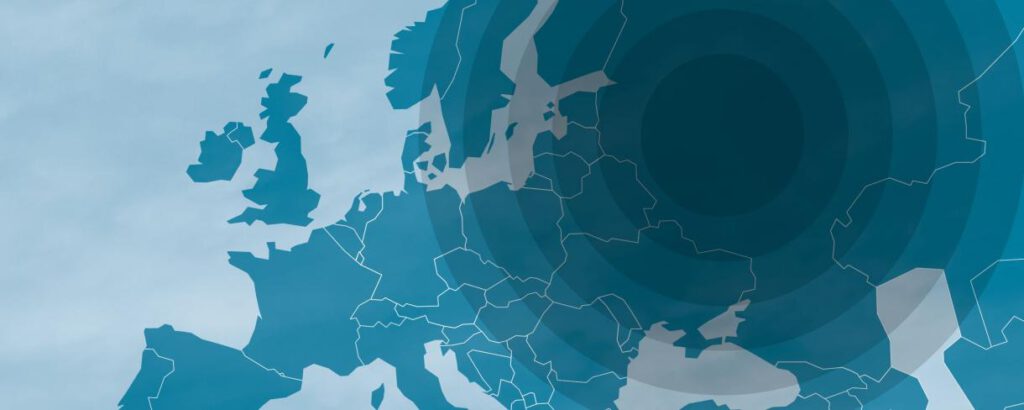Blog
23rd Federal Foreign Policy Conference: Security in the Twilight Zone
The Heinrich Böll Foundation hosted its 23rd annual Foreign Policy Conference in early February, with the GDL contributing to the conceptual design. This meeting brought together experts from various fields, including politics, academia, civil society and the media, to discuss current foreign policy issues and challenges. Several GDL Members also took on an active role at the conference. The event served as a platform for exchanging ideas, experiences and knowledge while promoting collaboration among actors from different sectors.
The conference, entitled “Security in the Twilight Zone – Regional, Transatlantic and Global Perspectives on the War in Eastern Europe”, was a great opportunity for those interested in international relations and foreign policy matters. Attendees were able to connect with like-minded individuals and expand their networks, as the conference featured both Zoom sessions and an in-person gathering.
This year, the dominant theme of the Heinrich Böll Foundation’s Annual Foreign Policy Conference was the Russian aggression against Ukraine, which sparked shock and disbelief worldwide. At the beginning of each online session, the emotional impact of this conflict was made clear by a video message from a victim of the war in Ukraine.
Promoting Collaboration and Exchanging Ideas on Current Security Challenges
Oksana Hlebushkina, the director of the NGO New Generation in Kherson, Ukraine, was forced to flee with her family due to the Russian aggression and currently lives in Ivano-Frankivsk in western Ukraine. The devastated country is still fighting an existential defensive battle against the aggressor, and will have to cope with the economic, social, and psychological consequences of war and violence for years to come. Additionally, the conflict has led to immediate economic disruptions in many other countries and exacerbated existing conflicts and crises.
GDL Member Maia Mazurkiewicz works very actively with her organisation Alliance 4 Europe to support Ukrainian refugees in Poland. It was in this capacity that she attended the event as an expert and spoke to the audience.
Together they explored the impact of the war on Ukraine, Europe and other world regions, as well as on international relations and multilateral governance structures. How are the tectonic shifts caused by this war perceived and evaluated, and what interests and motivations determine the positions taken by other countries?
The debate also focused on India and countries in Africa and Latin America during the session on “The War in Eastern Europe as seen in the Global South”. In this segment, Member Gaurav Sharma engaged with the audience and addressed various topics including India’s role in the ongoing conflict and the relevance of nuclear threats. Gaurav’s insights and expertise on the matter provided valuable information for the attendees, further enriching the discussion.
Three online sessions included interactive debates with the audience. These enabled the audience to share their opinions, be involved in the discourse and thus have a greater role in shaping the discussions. This not only promoted audience interactivity and engagement, but also enhanced the quality of the debates through the diversity of opinions.
Closing day with high-ranking politicians
The highlight of the conference was the event in Berlin on Friday, 10 February, where renowned political figures such as Annalena Baerbock (German Foreign Minister), Anders Fogh Rasmussen (former NATO Secretary General), Jürgen Trittin (Foreign Policy Spokesperson, Green Party, Berlin), and Agnieszka Brugger (Deputy Head of the Green Parliamentary Group, Berlin) gathered to discuss the Eastern European, transatlantic and global perspectives on Russia’s aggression against Ukraine.
In summary, our political security remains in a “twilight zone”. Although the causes and perpetrators of the conflict were identified during the conference, a unified way forward to weaken the perpetrators and prevent them from succeeding remains elusive. All participants recognised the need for a collaborative solution and showed willingness, but implementation is as always not so straightforward.
Published on March 30, 2023.
Image Credit: Heinrich Böll Stiftung
